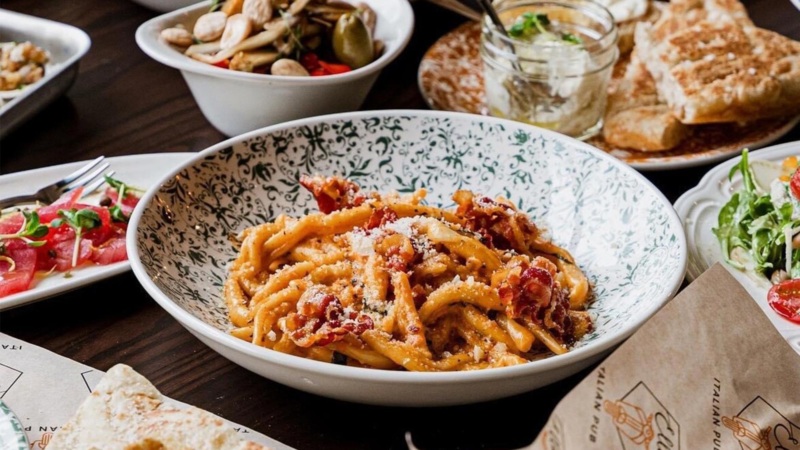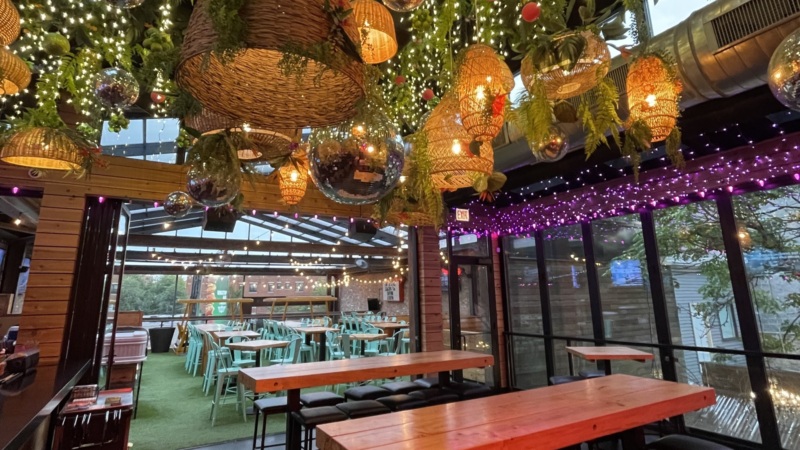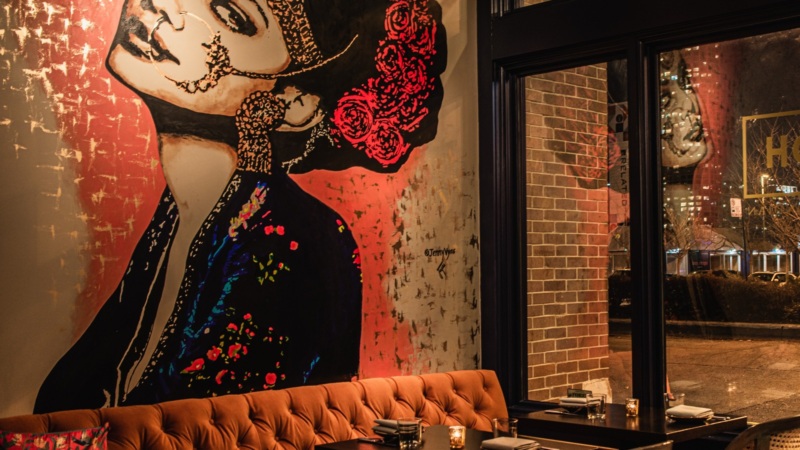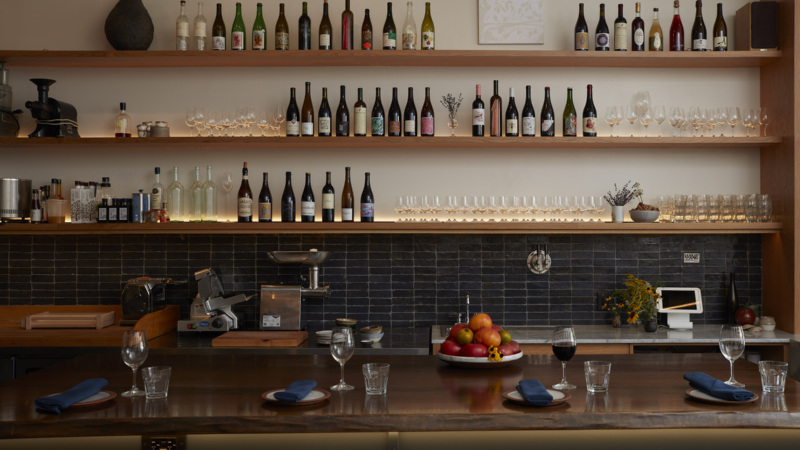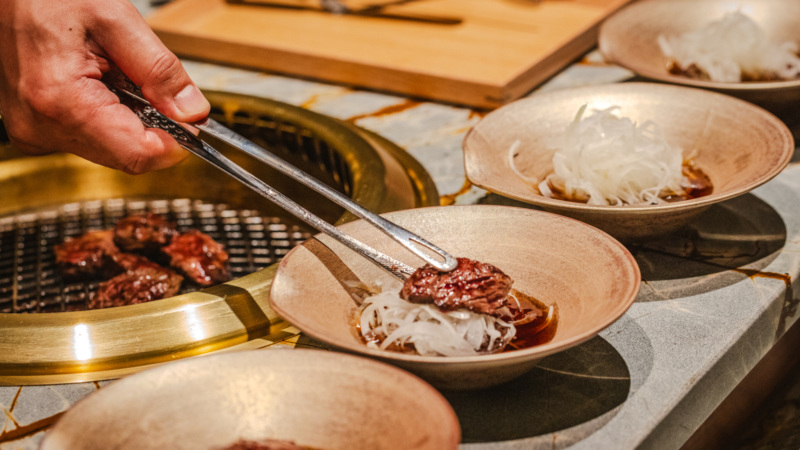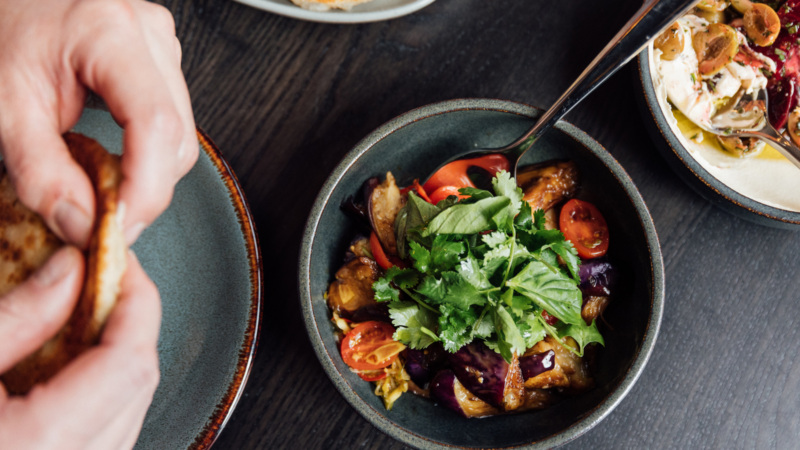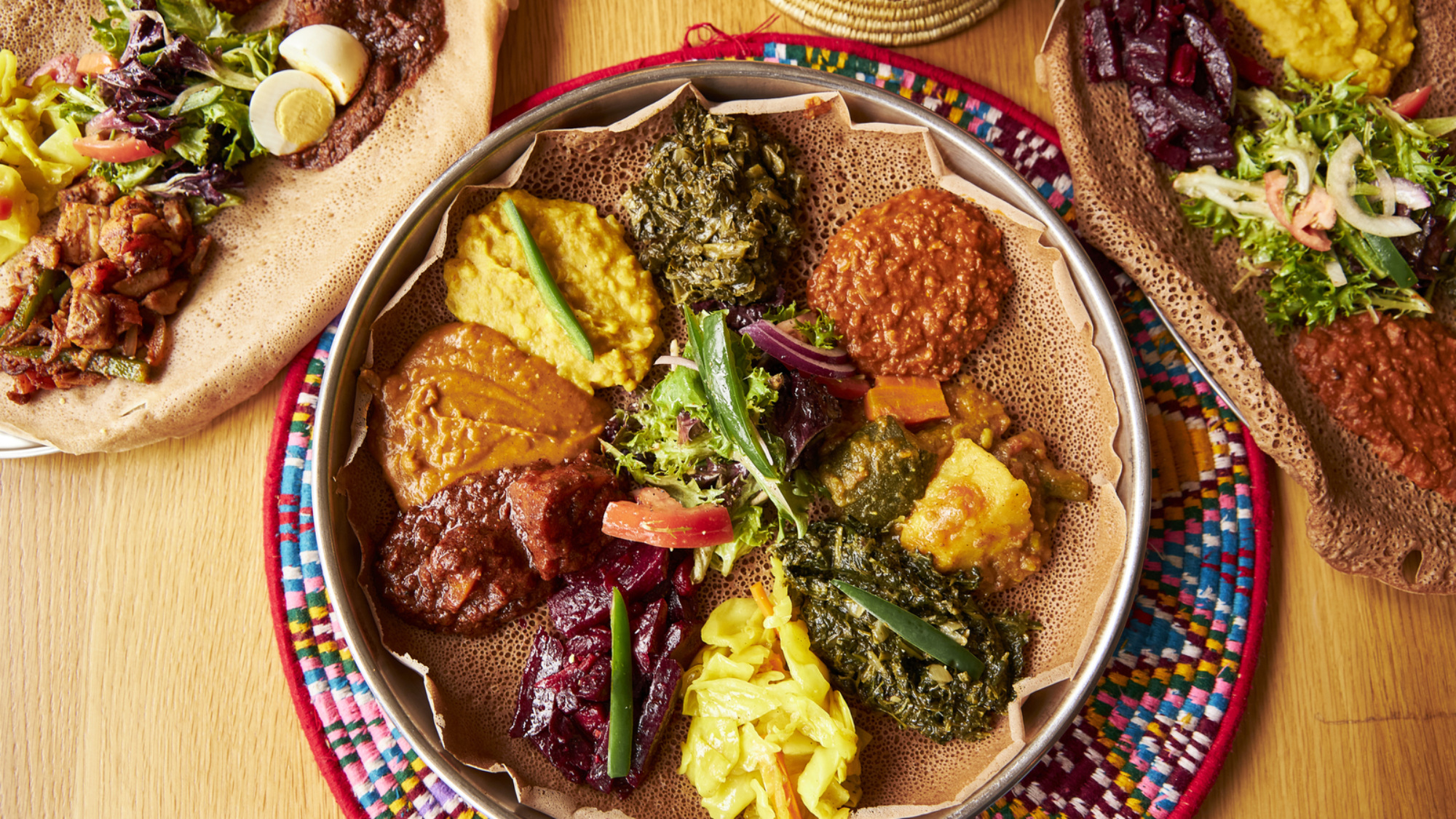
Demera’s Tigist Reda on the Power of Sharing Ethiopian Cuisine
When Tigist Reda thinks back to Demera’s early days, she recalls the regulars settled in around the tables of her warmly-lit dining room. They were mostly people of Ethiopian heritage, students from nearby universities, and people already familiar with the East African cuisine, perhaps from traveling to places like Washington D.C., home to the largest Ethiopian population in the country and an esteemed Ethiopian food scene. “But right now, the age group is all over, and it’s very diverse. It’s really amazing to see that change,” Reda says.
Indeed, African cuisine, a vast and varied category typically distinguished by region or country, has seen a bump in mainstream interest recently, with increased demand for the continent’s ancient foods, flavors, and many of its country’s national dishes—all of which are now accessible not only at restaurants, but also at supermarkets (thanks to CPG brands like the Chicago-based West African frozen food line, AYO Foods). Demera has become a fixture in a constellation of Ethiopian restaurants, largely located in Uptown and Edgewater, that are now mainstays of Chicago dining.
Demera corners the active intersection of Broadway and Lawrence, framed by nightlife greats: Aragon Ballroom, Riviera Theater, and the Green Mill jazz lounge. Its dining room is inviting, but when the weather acts right, I like to sit on the patio, where years ago, before we could take one bite of our sambusas, our good friends Dontay and Matt blurted a correct guess that my husband and I were expecting our first kid.
As Demera celebrates its Sweet 16 this month, Reda is just getting started. Her Uptown fixture is branching out and so is she. In September, we spoke to Reda about Ethiopian food as an intentional tool used to strengthen ties to her community—both locally and abroad—and to help shape her plans for the future.
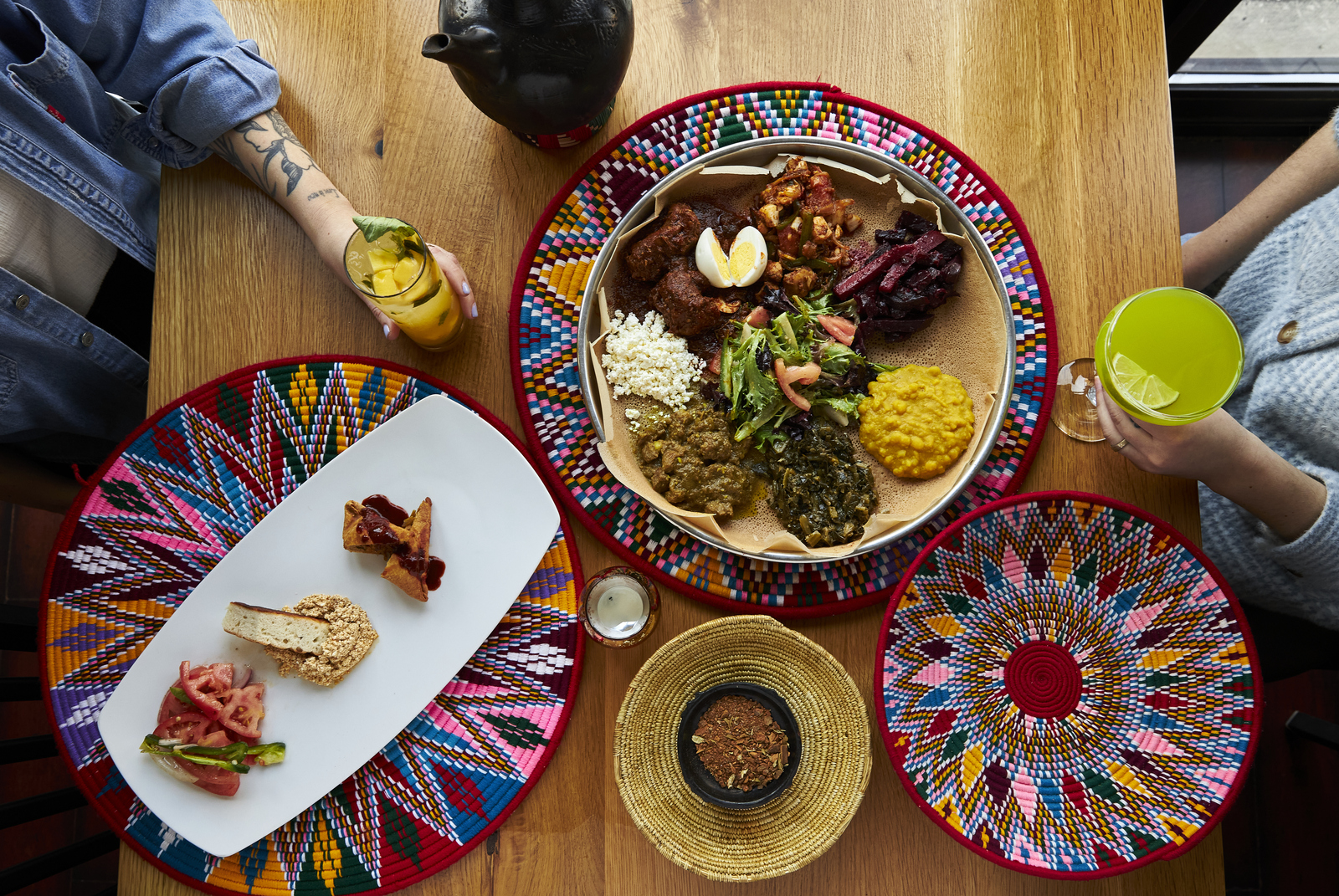
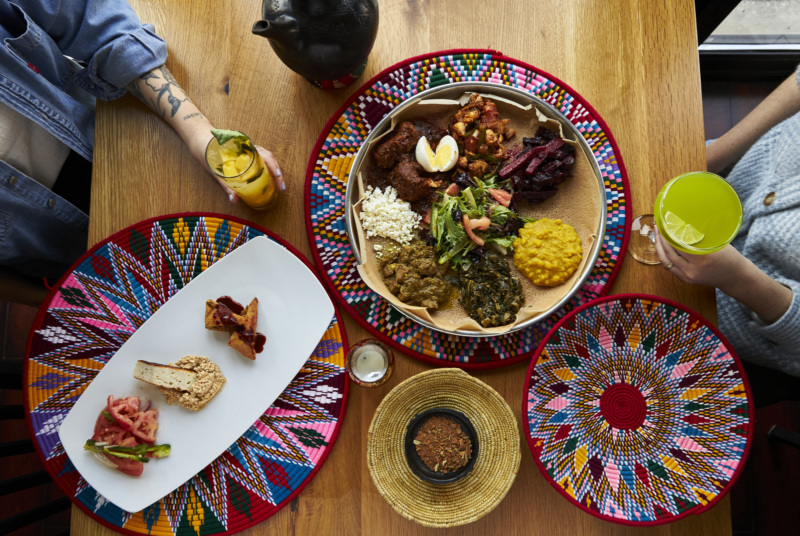
Ethiopian Flavors First
Reda’s food is reflective of her upbringing in the northern region of Tigray where she learned how to cook at home while preparing large meals alongside her mom, aunts, and sisters. “Families back home, the women in our families cook. Everything was made from scratch and spices were made at home. You grew up with it,” she says.
The doro wat on the menu is a nod to one of Reda’s childhood favorites. She grew up eating her mother’s spicy chicken stew, only managing to snag a hardboiled egg—no meat. “As one of the youngest kids [Reda is seventh out of 11], even if they make two chickens at a time, egg is what you get,” she laughs. But at Demera, Reda ensures we need not worry about the chicken or the egg—there, you generously get both. It’s a small example of the way in which Reda uses food to tell her story, and to care for others.
Reda wants diners to leave full and satisfied: ‘Not just with food, but also with flavor.’
For those less acquainted with Ethiopian cuisine, she points to the complex and delicious compositions that adorn her injera as a good starting point. The Demera Messob is a combination of meat and vegetable dishes; while the vegetable-forward Bayaynetu is comprised of nine vegan dishes, including creamy stewed yellow split peas with onions and turmeric; gingery-garlicky collard greens that have been slow cooked until tender; and an autumnal mix of sautéed beets and carrots with cinnamon. If you’ve ever prepared a holiday meal with a giant spread of sides, then you understand just how labor-intensive this one entree really is. But the lavishness is intentional. Reda wants diners to leave full and satisfied: “Not just with food, but also with flavor.”
Heat in Ethiopian cuisine is often brought on by ingredients like berbere, a dry spice blend that can also be prepared as a flavorful paste. Berbere is so fundamental to Ethiopian cuisine that in her book Hot Stuff, historian Dr. Jessica B. Harris describes the mixture as “Ethiopia’s hot sauce.” For balance, Reda suggests sips of Demera’s honey wine. “We call it ‘tej’ or ‘mes,’ and we make it in-house. It’s very flavorful and has a little bit of complexity to it,” she says.
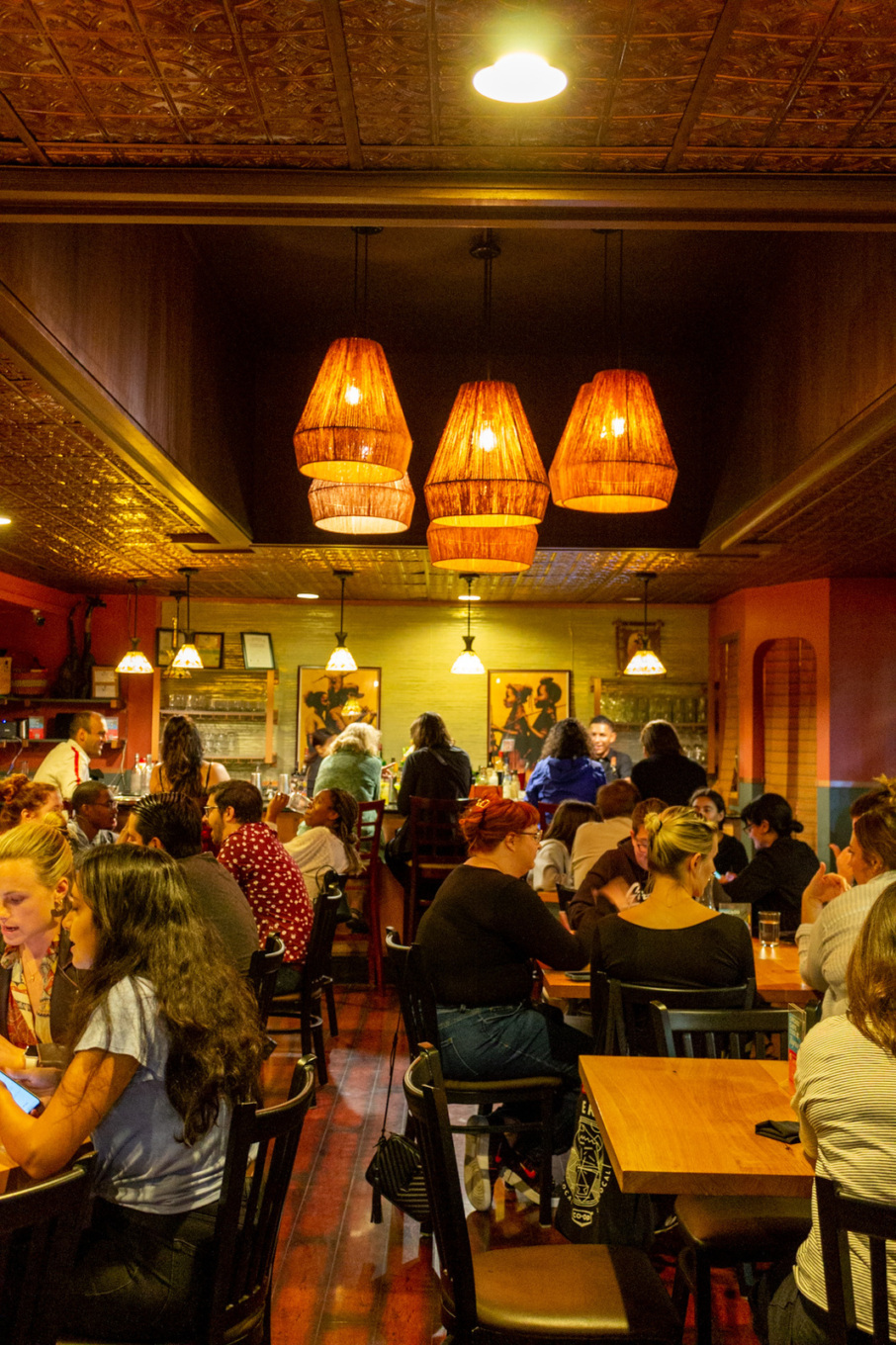
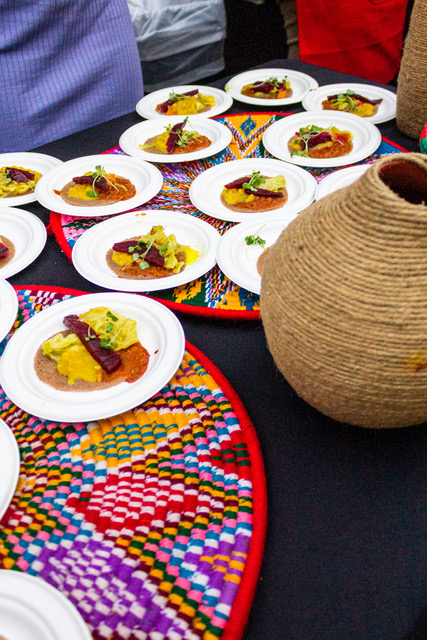
A Growing Footprint
Soon after opening a second location in West Loop at the Time Out Market Chicago food hall earlier this year, Reda announced plans for an ambitious project in Bronzeville. With the support of a community development grant, Reda will own and operate a nearly century-old building in the Cottage Grove corridor, turning it into a live-work space that’ll include a Demera with a rooftop bar. The project is just one block from the buzzy Bronzeville Winery, and the hopeful start of a new restaurant row in the city.
Branching out to the South Side, beyond the cluster of Ethiopian restaurants located on the North Side, is something that plenty of Reda’s regulars had encouraged. “We get a lot of customers asking—they’ve been asking for a long time, five or six years. And the more I think about it, why not Bronzeville?” says the chef. But Reda’s expansion goes beyond good real estate.
Cooking for a Cause
Perhaps you, too, have noticed Reda taking up space publicly. She’s been on the local news lately, on industry panels for the James Beard Foundation, and has also taken part in large food events across the city. During pandemic shutdowns, Reda says she found peer support and a viable network through the food and beverage group Let’s Talk Womxn. “And then the war [in Tigray] broke out, and I’ve been out there more, informing people about what’s happening and fundraising,” she says.
Since the crisis in Tigray started in 2020, Reda has been hosting about four dinners a year to raise funds and awareness for her homeland. “I wasn’t sleeping when the war [began]. So I just put my energy toward this, and it’s been very rewarding,” she says. One of the largest fundraisers took place last September, when Reda, along with the nonprofit Health Professionals Network for Tigray, and more than 30 Chicago-based chefs, raised more than $100,000 for women and children in Tigray.
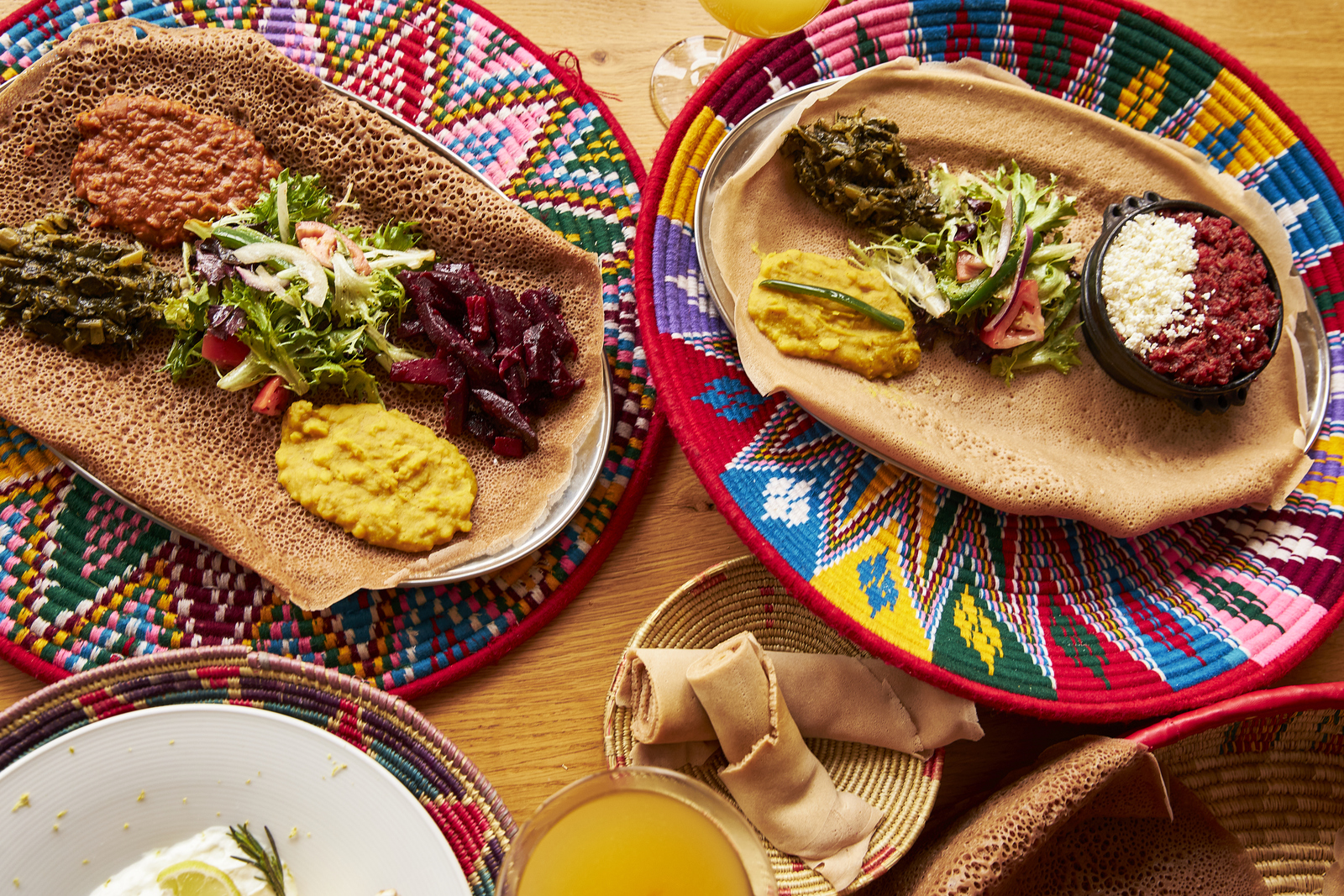
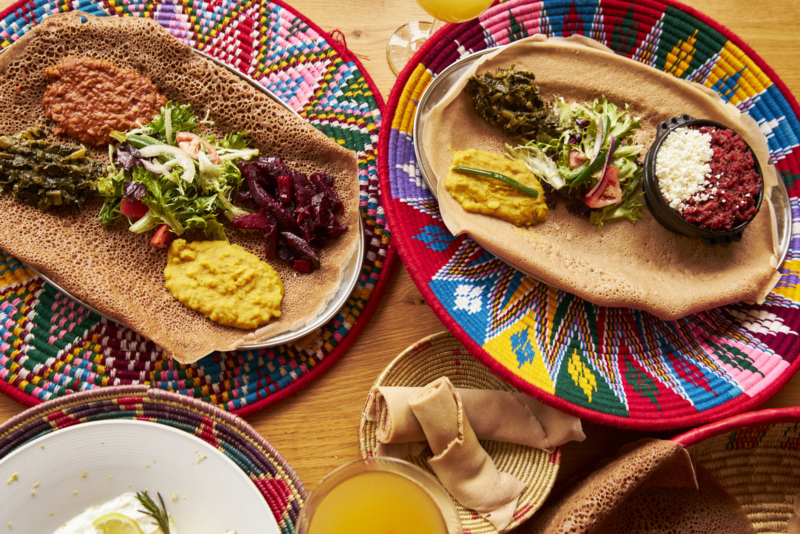
Many who turned out in support of the event said they had learned about the violence in Tigray not from the news cycle, where the story has largely fallen off, but from Reda herself. “For three years, people have had no access to banks, no communication, no light, and no humanitarian aid,” she says. “Women have been impacted by this so hard. Not just gender-based crimes, but also economically. In the family, they carry a lot of weight. So I focus on women and healing, as well as children.”
When we spoke in September, Reda had just returned from Ethiopia. It was the first time she was able to communicate with her parents and siblings in three years. “You know, it was hard to see what’s happened; and then it was good to see them,” she says. While some have moved beyond the state of urgency brought on by the pandemic, Reda is still operating in crisis mode.
This November, a month that should be an occasion to celebrate Demera’s milestone, Reda has instead chosen to hold a dinner with a collective of Chicago chefs to benefit women and children in Tigray. And even as Reda plans fundraisers for her home country, she is acutely aware of suffering worldwide—helping aid efforts for Ukraine, Puerto Rico, and Maui through Chicago Chefs Cook, all by preparing and serving Ethiopian food, a cuisine rooted in communality. One hopes that community will show up for Ethiopia as Reda presses on. “I will continue to do dinners. Anything that’s going to bring any light to people.”
Donations for Health Professionals Network for Tigray (HPN4Tigray) can be made here.
Angela Burke is a Chicago-based food writer. Follow her on Instagram and Twitter. While you’re at it, follow Resy, too.









